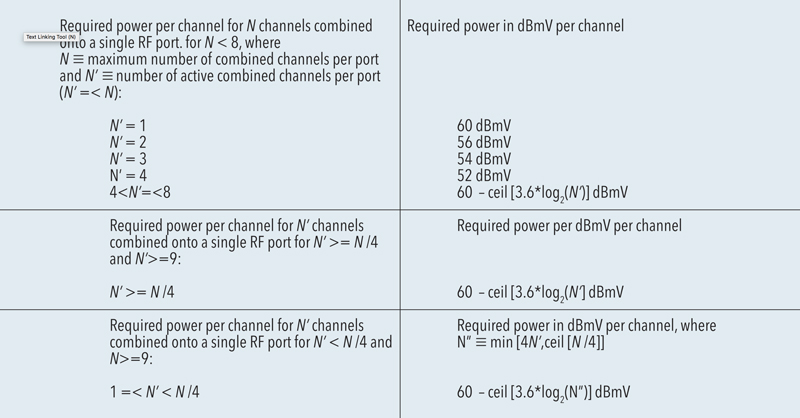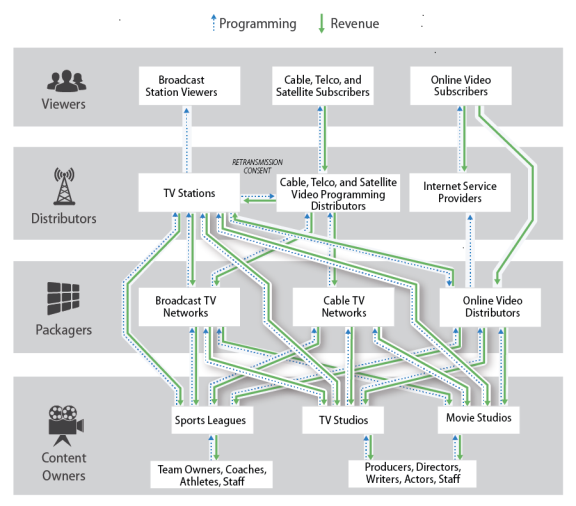A satellite receiver then decodes the desired television program for viewing.
Cable tv network started to distribute broadcast video signals to locations in the late.
In 1976 a new sort of cable system debuted.
The signals are received via an outdoor parabolic antenna commonly referred to as a satellite dish and a low noise block downconverter.
The head end is where the cable system receives programming from various sources assigns the programming to channels and retransmits it onto cables.
The supreme court affirmed the commission s jurisdiction over cable in united states v southwestern cable co 392 u s.
Distribution cable with foam dialectric.
A television network or broadcaster is a telecommunications network for distribution of television program content whereby a central operation provides programming to many television stations or pay television providers.
Broadcasters who used atsc and wanted to retain an analog signal were temporarily forced to broadcast on two separate channels as the atsc system requires the use of an entire separate channel.
In 1966 the commission established rules for all cable systems whether or not served by microwave.
Until the mid 1980s television programming in most countries of the world was dominated by a small number of terrestrial networks many early television networks such as the.
Satellite television is a service that delivers television programming to viewers by relaying it from a communications satellite orbiting the earth directly to the viewer s location.
The fcc rules that catv systems could use microwave relay systems to bring broadcast signals from distant cities only by showing that there would be no economic impact to broadcasters.
By the late 1970s fiber optics had progressed considerably and so were a cost.
Meadville master antenna inc meadville pennsylvania is the first system entirely built with this technology.
Not recommended for cord cutters living more than 35 miles from local broadcast towers.
This system used fiber optic cable for the trunk cables that carry signals from the catv head end to neighborhoods.
Today romania is using dvb t2 as terrestrial standard but also dvb s s2 and dvb c which is.
In the late 1950s cable operators began to take advantage of their ability to pick up broadcast signals from hundreds of miles away.
The federal communications commission first established rules in 1965 for cable systems which received signals by microwave antennas.
Atsc replaced much of the analog ntsc television system in the united states on june 12 2009 on august 31 2011 in canada on december 31 2012 in south korea and on december 31 2015 in mexico.
Romania started digital terrestrial broadcasting in 2005 but it was virtually unknown by many people in romania due to the lack of content cable tv and satellite tv being far more popular however it was the first platform to deliver hd content.









.png--diagram-flowchart-example.png)
/arc-anglerfish-arc2-prod-dmn.s3.amazonaws.com/public/A2FRXU4Q2M3NWWGDXD2OVIDQVU.jpg)